Medical Colleges in Russia for Indian Students Fees : Complete Fee Guide and Admission Process 2025
Medical Colleges in Russia – Are you aspiring to become a doctor who gets concerned over the unreasonable fees and cut-throat competition common in India? You share this concern with many. Each year, Russia is chosen by many Indian students for pursuing their careers in medicine. The value of studying medicine in Russia cannot be overlooked by Indian students, considering the world-class universities, affordable fees which start from Rs. 2.5 lakhs per year, and recognized degrees all over the world.
This detailed blog post will provide you with everything you need to understand about the medical colleges in Russia for Indian students, especially focusing on the costs associated, procedures for admission, and living in Russia. This article provides clarity and guidance to aid the students in shaping their careers.
Among the increasing popularity of studying MBBS abroad, Russians have remained the go-to option for Indian students. Our education professionals have helped over 5000 Indian students ensure placements in renowned Russian medical universities.
Why Choose Russia for MBBS?
Russia is a hotspot for Indian students looking to pursue a career in medicine, and for good reason. The latest statistic states that more than 80% of Russian universities offering medical courses are recognized by the Government of India, making these universities top choices for Indian students in Russia.
It is cheaper than South Korea and Singapore without sacrificing the quality of education. In fact, the A+ status given to Russia interschool contests shows the effectiveness of the public educational system in the country.
| MBBS in Russia: Affordable Education The MBBS in Russia fee structure is perhaps the most appealing aspect of studying MBBS in Russia. Russian universities charge between Rs. 15-35 lakhs for the complete 6-year program, a price significantly lower than private medical colleges in India, which can cost anywhere from Rs. 50 lakhs to 1 crore. | NMC Recognition Most medical universities in Russia are recognized by the National Medical Commission of India, World Health Organization, and other global medical organizations. This means your degree will not just be accepted in India, but internationally as well. |
| No Entrance Exams Russian universities give students direct admission based on their 12th standard marks, which is a relief compared to India’s NEET and other competitive entrance exams. To be eligible for practice in India post MBBS, students must qualify NEET but do not need to meet any specific cutoff. | English Medium Most Russian medical universities teach MBBS programs in English, which is an advantage for Indian students. Learning Russian is not a prerequisite, although basic Russian is taught during the program to enable better patient interaction. |
| Quality Education Unlike many countries, Russian medical education emphasizes practical training. Students get real-life clinical exposure very early in the course, which equips them with the skills necessary for the medical field. | Cultural Experience Gaining an education in Russia not only comes with the opportunity to experience the diverse Russian culture, but also gives access to a different healthcare system. Such international experiences can certainly contribute to personal development as well as professional advancement. |
Advantages of MBBS in Russia
- Affordable MBBS in Russia tuition fees Rs. 2.5-5 lakhs per year
- NMC and WHO recognized universities
- No donation or capitation fees
- English as medium of instruction
- Direct admission without entrance exams
- Strong focus on practical training
- Modern infrastructure and facilities
- Safe environment for international students
- Indian food available in most universities
Challenges to Consider
- Cold climate especially in winter
- Cultural and language differences
- Need to learn basic Russian for patient interaction
- Distance from home homesickness
- Need to clear NEXT/FMGE exam to practice in India
- Limited part-time work opportunities
- Adapting to different teaching methodologies
Medical Colleges in Russia for Indian Students Fees
Among the various reasons why Indian students prefer pursuing Medicine in Russia, the MBBS in Russia fee structure is one of the most significant. Let’s analyze the expenses associated with studying medicine in Russia.
Lowest MBBS in Russia Tuition Fees
As is the case, tuition fees for MBBS in Russian universities differ from one university to another based on its ranking, its geographical location, and the type of infrastructure that is offered. Here’s a general breakdown of the costs:
| University Category | Annual Tuition Fee INR | Total 6-Year Fee INR |
| Top-tier Universities | Rs. 4.5 – 6.5 lakhs | Rs. 27 – 39 lakhs |
| Mid-tier Universities | Rs. 3.5 – 4.5 lakhs | Rs. 21 – 27 lakhs |
| Budget-friendly Universities | Rs. 2.5 – 3.5 lakhs | Rs. 15 – 21 lakhs |
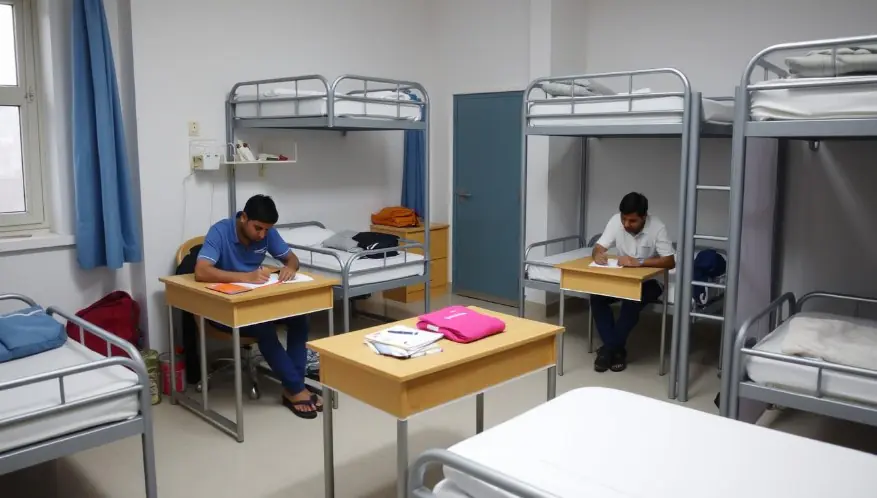
Additional Costs
Apart from the tuition fees, some additional expenses that need to be taken into account are:
| Expense Category | Average Cost (INR) | Frequency |
| Hostel Accommodation | Rs. 10,000 – 50,000 | Per year |
| Food/Mess | Rs. 10,000 – 15,000 | Per month |
| Medical Insurance | Rs. 10,000 – 15,000 | Per year |
| Visa Extension | Rs. 8,000 – 12,000 | Per year |
| Books & Supplies | Rs. 15,000 – 25,000 | Per year |
| Winter Clothing | Rs. 20,000 – 30,000 | One-time |
| Flight Tickets | Rs. 25,000 – 40,000 | Round trip |
Total Cost Comparison: Russia vs India
Now, let’s analyze the total cost incurred for studying MBBS in Russia along with the expenses for private medical colleges in India:
| Expense Category | MBBS in Russia 6 years | MBBS in India Private |
| Tuition Fees | Rs. 15 – 35 lakhs | Rs. 50 – 80 lakhs |
| Hostel & Food | Rs. 8 – 12 lakhs | Rs. 6 – 10 lakhs |
| Other Expenses | Rs. 5 – 8 lakhs | Rs. 3 – 5 lakhs |
| Donation/Capitation | None | Rs. 20 – 50 lakhs |
| Total Cost | Rs. 28 – 55 lakhs | Rs. 79 – 145 lakhs |
Want to Know the Exact Fees for 2025?
For personalized counseling on selecting the best medical university for you based on your budget and most updated fee structure, schedule a session now.
Top 10 NMC-Approved Medical Colleges in Russia
Below are the Top 10 medical universities in Russia most sought out by Indian students, along with their fee structure for the year 2025:
Kazan State Medical University
Established: 1814 NMC Approved
Kazan State Medical University is known for its quality education and groundbreaking facilities. Finding a place among the oldest medical universities in Russia, it has received praise from graduates as Indian students pass the FMGE exam in large numbers.
| Rs. 4.75 lakhs | Rs. 26,000 |
| Rs. 28.5 lakhs | 42% |
Kursk State Medical University
Established: 1935 NMC Approved
Kursk State Medical University has become one of the most preferred options for Indian learners. It has modern infrastructure, a centralized Indian student community, Indian food services and offers quality education.
| Rs. 4.55 lakhs | Rs. 57,000 |
| Rs. 27.3 lakhs | 38% |
Crimea Federal University
Established: 1918 NMC Approved
Crimea Federal University – This university is in the stunning area of Crimea. The university’s fee structure is quite low when compared to the quality of medical education being offered. The region has a modern climate and more comfortable facilities compared to other Russian cities.
| Rs. 3.15 lakhs | Rs. 10,000 |
| Rs. 18.9 lakhs | 32% |
Volgograd State Medical University
Established: 1935 NMC Approved
Volgograd State Medical University has one of the best Indian student communities as well as a good reputation for excellent clinical exposure and advanced teaching methods of instruction. Other international students of the university also receive tangible assistance.
| Rs. 4.18 lakhs | Rs. 36,000 |
| Rs. 25.08 lakhs | 35% |
Altai State Medical University
Established: 1954 NMC Approved
Altai State Medical University is known for having low fees while still maintaining quality instruction. The region houses one of the modern infrastructures in Russia, which allows for experienced personnel and good clinical exposure for the students.
| Rs. 3.40 lakhs | Rs. 58,000 |
| Rs. 20.4 lakhs | 30% |
Bashkir State Medical University
Established: 1932 NMC Approved
Bashkir State Medical University, located in Ufa, has a clear focus on research, but is also known for having quality instruction. All students from international countries will be delighted to see the modern facilities as well as the supportive environment.
| Rs. 4.90 lakhs | Rs. 14,000 |
| Rs. 29.4 lakhs | 35% |
Tver State Medical University
Established: 1936 NMC Approved
Tver State Medical University is an affordable alternative for Indian students, and strikingly one of the most affordable educational institutions in existence today. It does not compromise on quality education and still manages to have decent infrastructure.
| Rs. 3.50 lakhs | Rs. 12,000 |
| Rs. 21 lakhs | 40% |
Orenburg State Medical University
Established: 1944 NMC Approved
Known for having a fair distribution of emphasis on practical and theoretical work, Orenburg State Medical University has one of the best tracks of Indian students clearing the FMGE exam.
| Rs. 4.00 lakhs | Included in tuition |
| Rs. 24 lakhs | 33% |
Yaroslavl State Medical University
Established: 1944 NMC Approved
Yaroslavl State Medical University is one of the extremely reasonably priced options that provide fine tuition. It has an emphasis on practical training and clinical exposure.
| Rs. 2.62 lakhs | Rs. 48,000 |
| Rs. 15.72 lakhs | 28% |
Far Eastern Federal University
Established: 1899 NMC Approved
The Far Eastern Federal University in Vladivostok offers a modern campus and facilities. It consists of a diverse international student body and strong academic programs.
| Rs. 4.40 lakhs | Rs. 40,000 |
| Rs. 26.4 lakhs | 30% |
Budget-Friendly Options
If you want to have the lowest fees, consider these universities:
- Yaroslavl State Medical University – Rs. 2.62 lakhs per year
- Immanuel Kant Baltic Federal University – Rs. 2.75 lakhs per year
- Chuvash State University – Rs. 2.58 lakhs per year
These universities grant practical knowledge with lower tuition fees while ensuring NMC recognition.
Need Help Choosing the Right University?
Our experts to assist you in choosing the perfect university for you based on your budget, academic background, and career goals.
Mr. Mukesh Saini
Call/WhatsApp No. +918449022064 Email:- contact@admissionroute.com
Admission Process for Indian Students
Admission to a medical university in Russia is much easier than seeking admission into the highly competitive system in India. Here, we will style a stepwise guide for you to proceed through admission in brief:
Check Eligibility
Ensure you meet the basic eligibility criteria:
- Minimum 50% aggregate in PCB (Physics, Chemistry, Biology) in 12th standard
- NEET qualification (no specific cutoff, just qualification)
- Age of 17 years or above
- Valid passport
Choose the Right University
Research and select universities based on:
- Budget constraints
- NMC recognition
- FMGE pass rates
- Location preferences
- Available facilities
Prepare Documents
Gather all required documents:
- 10th and 12th mark sheets and certificates
- NEET scorecard
- Passport (valid for at least 18 months)
- Passport-sized photographs (8-10)
- Birth certificate
- Medical fitness certificate
- HIV test report
- Bank statement showing financial capability
Apply to Universities
Submit applications to your chosen universities:
- Fill out the application form (online or through an education consultant)
- Submit required documents
- Pay the application fee (if applicable)
Receive Admission Letter
After reviewing your application, the university will issue:
- Official admission letter
- Invitation letter for visa purposes
Apply for Student Visa
With the invitation letter, apply for a Russian student visa:
- Fill out the visa application form
- Submit passport, invitation letter, and other required documents
- Pay the visa fee
- Attend visa interview (if required)
Pay Tuition Fees
Make the first-year tuition fee payment as per university’s instructions.
Book Flight Tickets
Once your visa is approved, book your flight tickets to Russia.
Arrive in Russia
Upon arrival:
- Complete university registration
- Arrange accommodation (usually university hostels)
- Complete medical insurance formalities
- Register with the local migration office
Important Deadlines
Most Russian universities have two intake periods:
- Fall Intake (Main): Applications open in January-February and close by July-August
- Winter Intake (Limited seats): Applications open in September-October and close by November-December
For a seamless processing experience, it is best to apply at least three to four months before your desired intake.
Scholarships for Indian Students in Russian Medical Colleges
Though Russian medical education is already affordable, there are a number of scholarships which can further relieve your financial burden:
| Russian Government Scholarships The Russian government offers only a few scholarships to impecunious international students, including those from India. These scholarships are meant to cover tuition fees and sometimes offer a reasonable stipend for living expenses. Eligibility: Outstanding academic record, recommendation letters, sometimes Russian language proficiency test. Application Deadline: Usually February-March each year
| University-Specific Scholarships International students fulfilling specific conditions may apply for merit-based scholarships at many Russian universities. Eligibility: Varies from university to university but generally requires exceptionally good academic scores in school, with some asking for an entrance test in addition. Reduction: 10-30% of tuition fees
| ICCR Scholarships The Indian Council for Cultural Relations (ICCR) offers scholarships to Indian students wishing to pursue studies abroad, including Russia. Eligibility: Indian citizens with excellent academic records Coverage: Tuition fees, accommodation, and monthly stipend
|
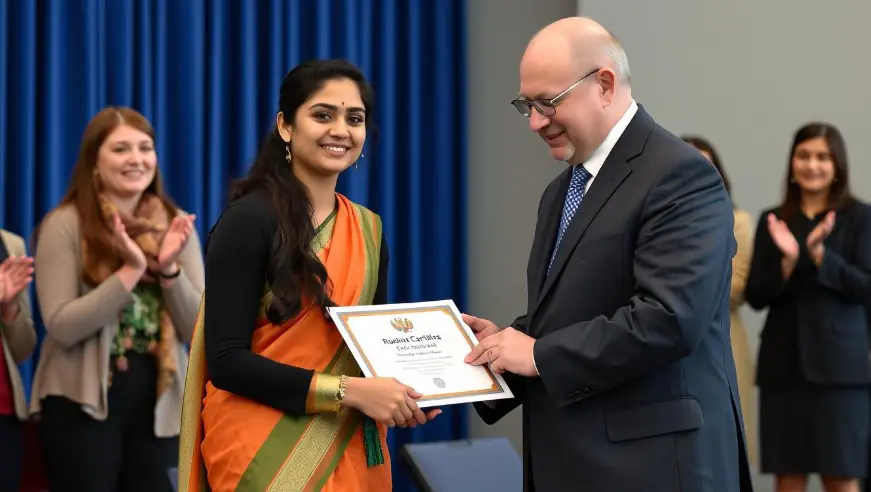
Performance-Based Fee Reductions
Excellent academic results prove grounds for getting tuition reduction at many universities in Russia. Usually, a student who scores fairly consistently above 80-85 percent can expect from the second year a 5- to 15-percent reduction in annual tuition fees.
“I received a 15% scholarship in my second year at Kazan State Medical University based on my first-year performance. This reduced my financial burden significantly and motivated me to maintain good grades throughout my course.”
Priya Sharma, 4th year MBBS student
Want to Know About Scholarship Opportunities?
Our experts can notify you of available scholarships and assist you in applying for them.
Living in Russia: Food, Safety, and Cultural Tips
Shifting to a new country can be a fine blend of excitement and struggle. Here goes what one must know about life in Russia as an Indian student:
Accommodation Options
Most Indian students opt for university hostels, which are:
- Affordable (Rs.10,000-50,000 per year)
- Conveniently located near the university
- Equipped with basic amenities
- Often have separate blocks for boys and girls
Private apartments are preferred by many students. Generally, in localities close to the centres, prices may range from Rs.15,000/30,000 a month, depending upon the group and city.
Food and Dietary Concerns
Food concerns are always amongst the most prominent ones for Indian students. Here’s how to go about it:
- Many universities have Indian messes or canteens serving Indian food
- Most hostels have kitchen facilities where you can cook your own food
- Indian groceries are available in major cities
- Vegetarian options are increasingly available in Russian cities
Weather and Clothing
Russia is famous for its frosty winters, especially in cities like Moscow and St. Petersburg:
- Winters can be extremely cold (-20°C to -30°C)
- Invest in good quality winter clothing (thermal wear, heavy jacket, boots, gloves, etc.)
- Summers are pleasant (15°C to 25°C)
- All buildings, including hostels and universities, have central heating systems
Safety Concerns
Russia is generally safe for international students:
- University campuses and student areas are well-protected
- Most cities have low crime rates
- It’s advisable to avoid isolated areas late at night
- Always carry your documents (passport, visa, student ID) with you

Cultural Adaptation
Adapting to Russian culture can take some time; however, it is certainly an enriching experience:
| Language While medical courses are taught in English, learning basic Russian helps in daily life:
| Social Life Building a social network makes your stay more enjoyable:
|
Monthly Living Expenses
An approximate monthly expense projection of an Indian student in Russia follows:
| Expense Category | Average Cost INR | Notes |
| Food | Rs. 10,000 – 15,000 | Higher if eating out frequently |
| Local Transport | Rs. 2,000 – 3,000 | Student discounts available |
| Mobile & Internet | Rs. 1,000 – 1,500 | Affordable plans available |
| Personal Expenses | Rs. 5,000 – 8,000 | Includes clothing, entertainment, etc. |
| Books & Supplies | Rs. 1,000 – 2,000 | Averaged monthly |
| Total Monthly Expenses | Rs. 19,000 – 29,500 | Excluding accommodation |
“The initial few months were challenging due to the language barrier and cold weather. But once I made friends and learned basic Russian, life became much easier and enjoyable. The cultural exposure has been an incredible part of my medical education journey.”
Rahul Patel, 5th year MBBS student at Volgograd State Medical University
Have Questions About Life in Russia?
Reach out to our student ambassadors who are currently studying at Russian medical universities.
Post-Graduation Opportunities: FMGE, Internships, and Jobs
What next after your MBBS in Russia? Let’s talk about pathways and opportunities for graduates:
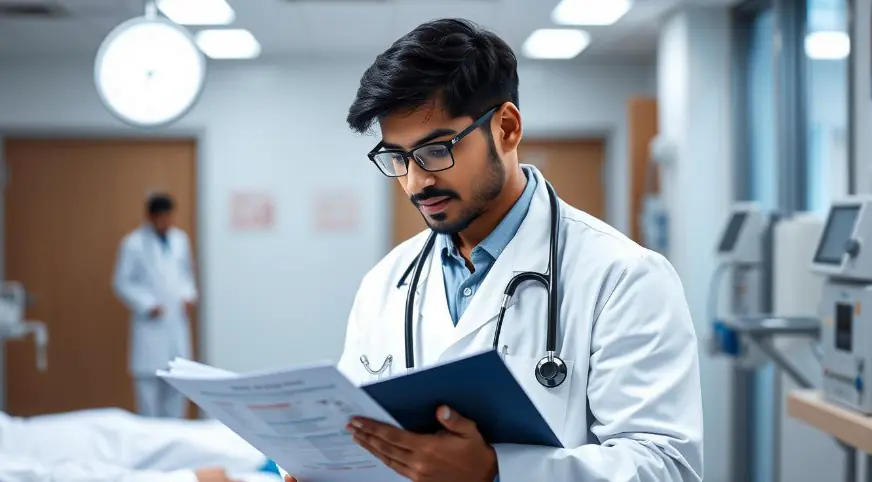
Returning to India: FMGE/NEXT Exam
In order to practice medicine in India after your MBBS from Russia, you will have to clear the Foreign Medical Graduate Examination (FMGE), which will be replaced with the National Exit Test (NEXT) from 2024:
About FMGE/NEXT
- Conducted by the National Board of Examinations (NBE)
- Held twice a year (June and December)
- Passing score: 50%
- Tests knowledge across 19 pre-clinical and clinical subjects
Preparation Strategy
- Many Russian universities offer FMGE coaching in the final year
- Join specialized coaching programs after returning to India
- Form study groups with fellow graduates
- Use FMGE-focused study materials and question banks
FMGE Pass Rates from Russian Universities
The average FMGE pass rate of graduates from Russian medical universities hovers around 25-35%, which is higher than that of many foreign countries. Universities such as Kazan State Medical University, Tver State Medical University, and Kursk State Medical University have always shown better results with pass rates in the range of 35-42%.
Career Paths After MBBS from Russia
A number of career options await graduates from Russian medical universities
Practice in India
- Clear FMGE/NEXT exam
- Complete one-year internship in India
- Register with state medical council
- Work in government or private hospitals
- Set up private practice
Higher Studies
- Prepare for NEET-PG for MD/MS in India
- Apply for residency programs in USA (USMLE)
- Apply for PLAB for UK practice
- Pursue PG in Russia or other European countries
- Specialized courses and certifications
Alternative Careers
- Medical research
- Healthcare management
- Medical writing and content creation
- Pharmaceutical industry roles
- Medical insurance sector
Working in Russia or Other Countries
Some graduates choose to work internationally:
| Country | Requirements | Opportunities |
| Russia | – Russian language proficiency – Pass Russian medical licensing exam – Work permit/visa | – Hospital positions – Research opportunities – Teaching positions |
| USA | – USMLE Steps 1, 2, and 3 – ECFMG certification – Residency program | – Residency programs – Specialist positions – Research roles |
| UK | – PLAB exam – GMC registration – English language test (IELTS) | – NHS positions – Private healthcare – Specialist training |
| Germany | – German language proficiency (B2/C1) – Medical knowledge test – Work permit | – Hospital positions – Specialist training – Research roles |
| Middle East | – Country-specific licensing exam – Experience (usually 1-2 years) – Work permit | – Well-paid hospital positions – Tax-free income in some countries – Modern healthcare facilities |
“After completing my MBBS from Kursk State Medical University, I cleared the FMGE in my first attempt. The practical exposure I received in Russia gave me an edge during my internship in India. I’m now preparing for NEET-PG while working at a private hospital in Delhi.”
Dr. Ankit Verma, MBBS Graduate (2021)
Planning Your Career After MBBS?
Get expert guidance regarding post-graduation opportunities and FMGE/NEXT preparation strategies.
Student Experiences of Indian Students in Russia
 | 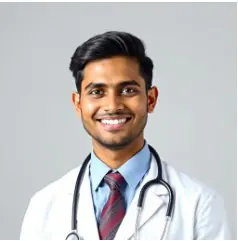 | 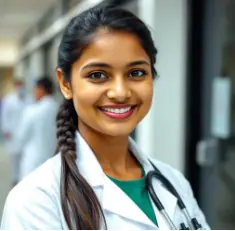 |
| Ananya Pandey | Rajesh Mukherjee | Priya Garg |
| Kazan State Medical University, 4th Year | Volgograd State Medical University, Graduate 2020 Batch | Crimea Federal University 3rd Year |
| Kazan State Medical University offered me quality education at one-third the cost of private colleges in India. The practical exposure here is excellent, and professors are very supportive. Yes, the weather was challenging initially, but you adapt quickly. I have made friends from around the world and am confident about clearing FMGE when I graduate. | I graduated from Volgograd State Medical University in 2020 and cleared FMGE in my second attempt. The clinical exposure I received in Russia was invaluable. Russian professors focus a lot on practical skills, which helped me during my internship in India. The cost of my entire education in Russia was less than what I would have paid for just two years in a private college in India. Currently working at a government hospital in Bihar after completing my internship. | The beautiful campus and affordable fees attracted me to Crimea Federal University. The weather here is much lighter compared to other Russian cities. What I love most is the various student community – I have friends from over 20 countries. The university has an Indian mess serving vegetarian food, which was a big relief. I am focusing on building strong fundamentals to clear the FMGE after graduation. |
Dr. Vikram Gupta, Kursk State Medical University Graduate 2019 Batch
Kursk State Medical University
The decision to study MBBS in Russia was the best choice I made. Despite initial challenges with language and weather, the quality of education, practical submission, and multicultural environment have shaped me into a confident doctor. The popular fees show I could focus on my studies without the burden of heavy loans.
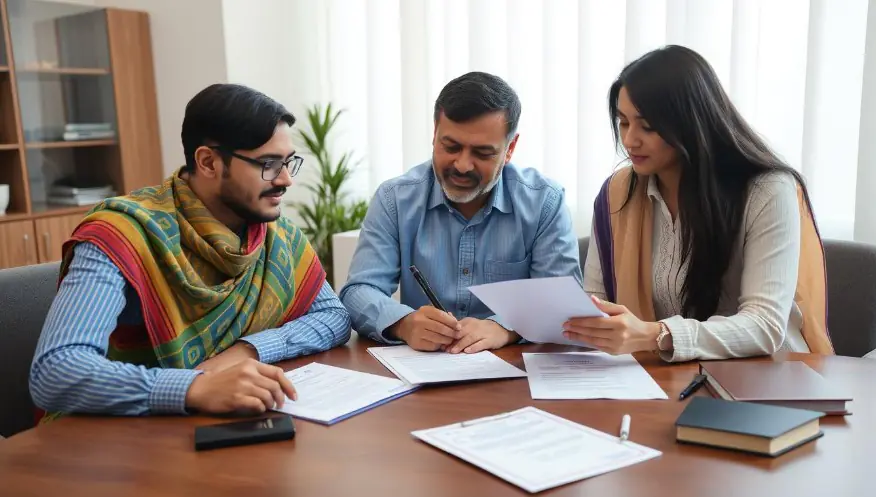
FAQs
Is MBBS from Russia valid in India?
MBBS degrees from Russian medical university recognized by the NMC are recognized in India. To practice medicine in India, graduates must pass the FMGE/NEXT exam. Russia has more than 60 medical schools that have been approved by the NMC.
What is the total cost of studying MBBS in Russia?
A 6-year MBBS program in Russia can low cost anywhere between Rs. 15 lakhs to Rs. 35 lakhs. This covers medical insurance, tuition fees, and hostel fees. An additional 2 to 3 lakhs would be needed for living expenses each year.
Is NEET mandatory for MBBS in Russia?
Indian students who wish to pursue MBBS, including in Russia, must be NEET qualified. Russian universities do not have a set cutoff score.
What is the medium of instruction in Russian medical universities?
Most Russian medical universities offer MBBS programs in English medium for international students. Students are also educate basic Russian language in the first year to help them communicate with patients during clinical rotations.
How is the FMGE pass rate for students from Russian universities?
The average FMGE pass rate for graduates from Russian medical universities ranges from 25 to 42 percent, depending on the university. • Kazan State Medical University • Tver State Medical University • Kursk State Medical University
Is it safe for Indian students to study in Russia?
Absolutely, students can feel secure while studying MBBS in Russia. The country boasts low crime rates, and both student neighborhoods and university campuses are well-guarded.
Can I work part-time while studying MBBS in Russia?
International students can work part-time in Russia if they have the right work permit. It is generally not recommended for MBBS students to take on work during their studies, especially in the first few years, due to the intense demands of medical education and the challenges posed by the language barrier.
Are scholarships available for Indian students in Russian medical universities?
Indian students, there are not a lot of scholarship opportunities available. Some options include merit-based scholarships from the Russian government, specific scholarships from universities.
What is the duration of the MBBS program in Russia?
The MBBS program in Russia usually spans 6 years, which consists of 5 years dedicated to both theoretical and practical studies, followed by a 1-year internship. Once graduates return to India, they must complete an additional one-year internship after passing the FMGE/NEXT exam.
Is Indian food available in Russia?
As for Indian cuisine, you will find it in most Russian cities that have a good number of Indian students. Many universities offer Indian messes or canteens where you can enjoy familiar dishes. Plus, most hostels come equipped with kitchen facilities, allowing students to whip up their own meals, and you can easily find Indian grocery stores in the major cities. Our education counselors are here to answer all your queries about studying MBBS in Russia. Mr. Mukesh Saini = +91 8449022064 Book Schedule a Free Consultation
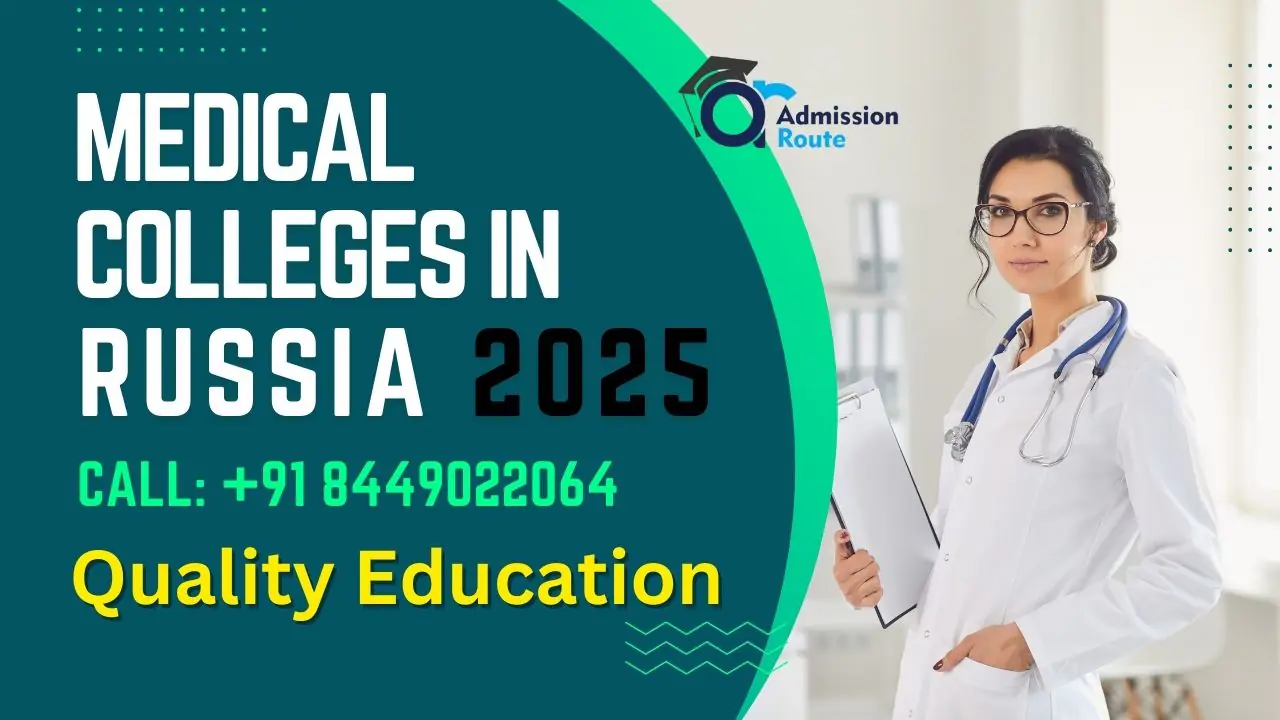

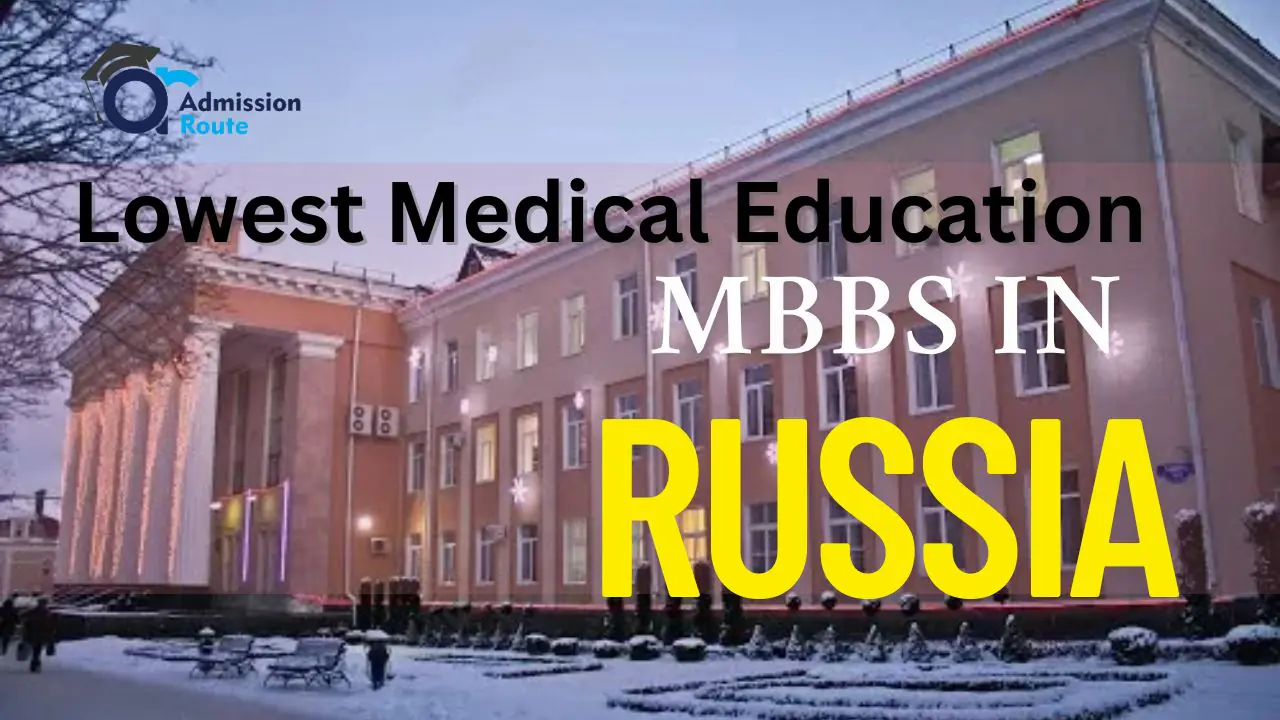
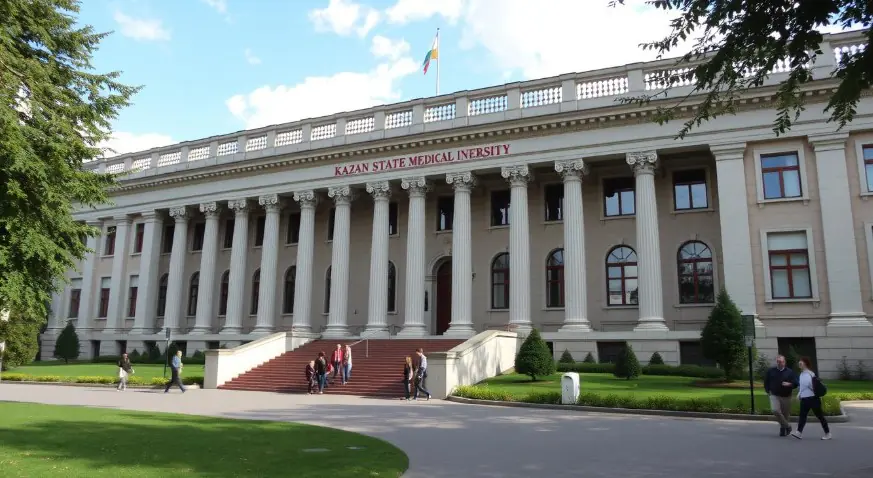
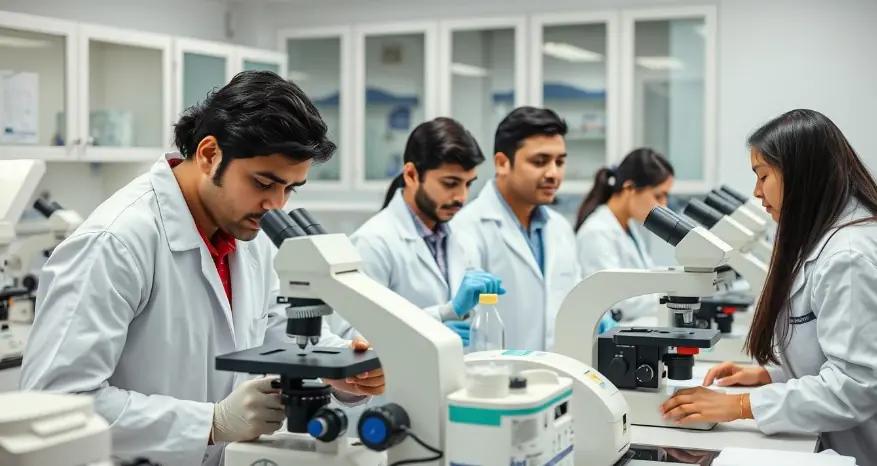

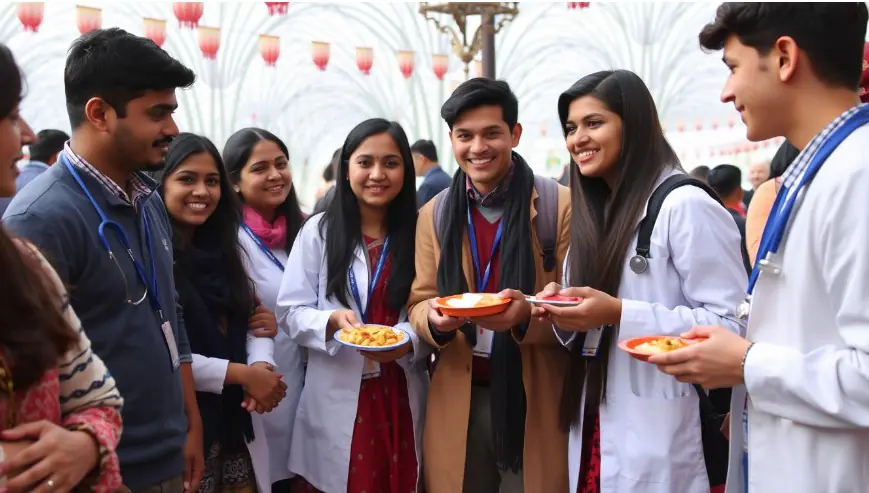

LuckyBandit
November 7, 2025https://t.me/pt1win/219
RoyalFlusher
November 9, 2025Актуальные рейтинги лицензионных онлайн-казино по выплатам, бонусам, минимальным депозитам и крипте — без воды и купленной мишуры. Только площадки, которые проходят живой отбор по деньгам, условиям и опыту игроков.
Следить за обновлениями можно здесь: https://t.me/s/reitingcasino
RouletteRogue
November 10, 2025https://t.me/s/iGaming_live/4581
HighRollerMage
November 13, 2025https://t.me/s/reyting_topcazino/18
RouletteRogue
November 23, 2025https://t.me/s/ef_beef
AllInAce
December 11, 2025https://t.me/dragon_money_mani/11
HighRollerMage
December 11, 2025https://t.me/dragon_money_mani/26
binance Registrācijas bonusa kods
January 23, 2026Your article helped me a lot, is there any more related content? Thanks!
binance
January 27, 2026Thank you for your sharing. I am worried that I lack creative ideas. It is your article that makes me full of hope. Thank you. But, I have a question, can you help me?
Inscription à Binance US
January 28, 2026Can you be more specific about the content of your article? After reading it, I still have some doubts. Hope you can help me. https://accounts.binance.info/ph/register?ref=IU36GZC4
Καλτερο κωδικ αναφορ Binance
February 12, 2026Your article helped me a lot, is there any more related content? Thanks! https://accounts.binance.com/es-MX/register-person?ref=GJY4VW8W